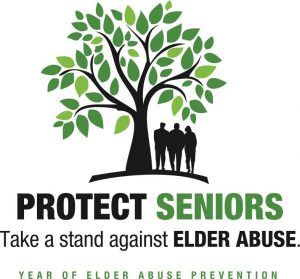Confused on the differences between “elder abuse”, “elder neglect”, “nursing home negligence”, and “elder exploitation”? You are not alone. Many times, these words are used interchangeably to define misconduct resulting in physical, emotional, psychological or financial harm to older adults. However, there are subtle differences between abuse, neglect, exploitation and negligence. Our elder abuse attorneys help clarify the distinctions between these terms below.
Elder Abuse
The term elder abuse generally means an intentional act harming a senior citizen. Elder abuse can also mean that the violator’s actions were so reckless that he or she should have known that the action would likely result in harm to the elderly victim.
Examples of elder abuse include:
- Physical attacks, such as resident-on-resident assaults.
- Intimidation or threats made against a vulnerable adult.
- Forceful transfers or generalized rough handling of an immobilized senior citizen.
- Sexual assault.
In an elder abuse lawsuit, intentional or reckless conduct can result in punitive damages.
Elder Neglect
Elder neglect is defined as the withholding of basic care needs that an elderly person requires for their health, safety or well-being. While elder abuse is intentional, elder neglect can be accidental or negligent.
Examples of elder neglect include:
- Failing to reposition an immobilized patient, resulting in pressure sores.
- Failing to provide a vulnerable senior citizen their medication.
- Failing to assist an at-risk person with changing, toileting or bathing.
- Failing to change an incontinent elderly person who has a dirty adult diaper.
Facility Negligence
Nursing home negligence or assisted living negligence is similar to the above failures, except that they occur inside a long-term care facility. Facility negligence is generally perpetrated by nurses, aides, staff and employees of the nursing home or assisted living facility.
Indicators of facility negligence include:
- pressure ulcers;
- patient falls;
- medication mistakes;
- extreme malnutrition;
- wrongful death.
There are Federal and State laws prohibiting facility neglect of vulnerable residents. Facilities can be held accountable for allowing resident injuries via a facility negligence lawsuit.
Elder Exploitation
Elder exploitation is when a person takes advantage of an older adult. This can be done in a variety of ways, including manipulation, lying, intimidation, misrepresentations or having the vulnerable senior sign legal documents without consent or capacity.
While elder exploitation may not result in physical injury, it can result in serious financial harm to the elderly person.
If you See Something, Say Something!

Harming senior citizens is illegal in every state in America. Allowing a vulnerable senior citizen to suffer abuse, neglect or exploitation is also forbidden by federal laws and regulations.
So Why is Elder Abuse & Neglect a Growing Problem?
Experts estimate that 1 in 10 Americans aged 60 and over suffer elder abuse or neglect. Despite the prevalence of elder abuse in our society, only 7% of elder abuse incidents ever get reported.
Elder abuse and neglect can only survive in silence. By reporting elder abuse, you are doing your part to prevent a systemic cycle of preventable harm to our most vulnerable members of society.
Take Action
Click on the link to learn how to report elder abuse in your area.

